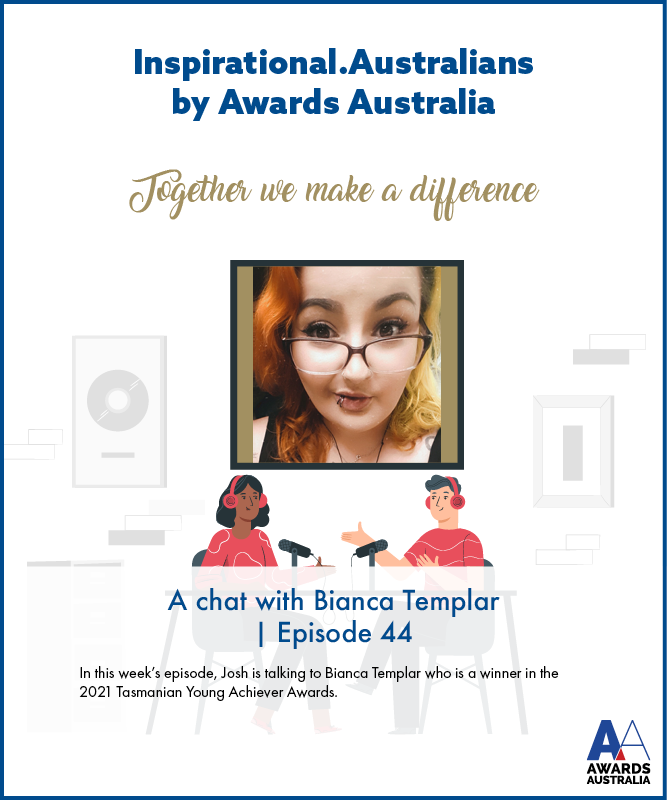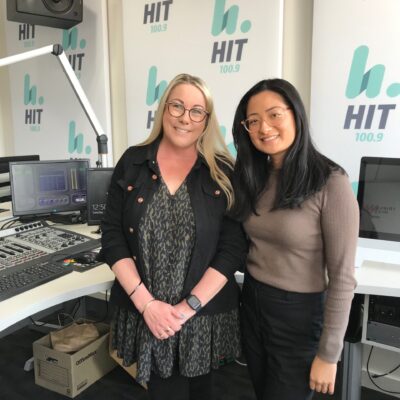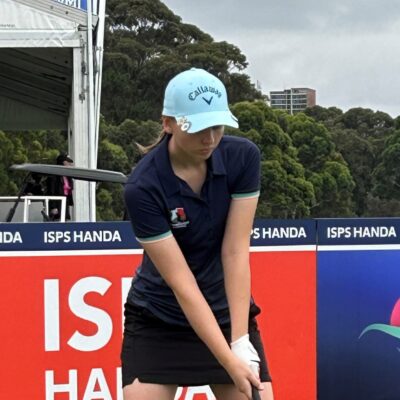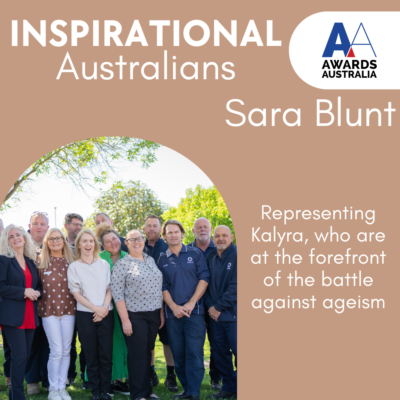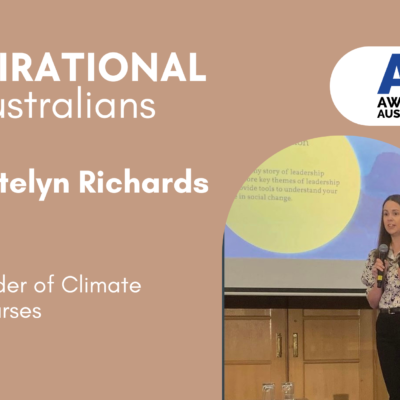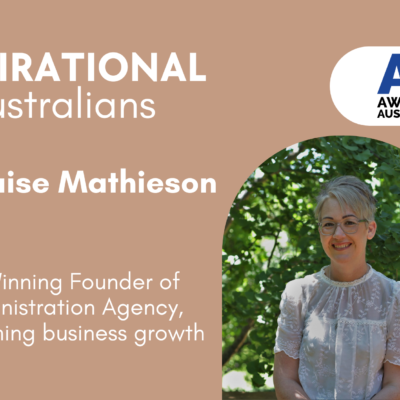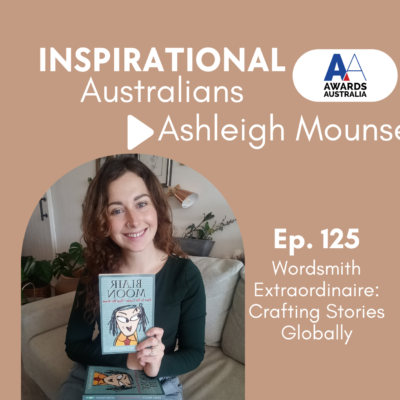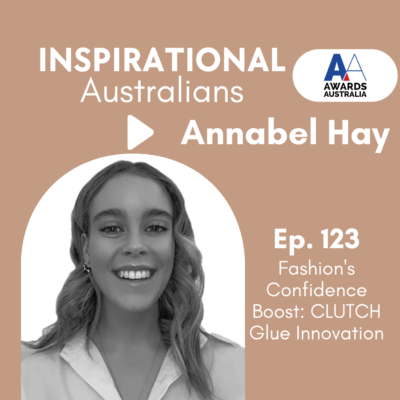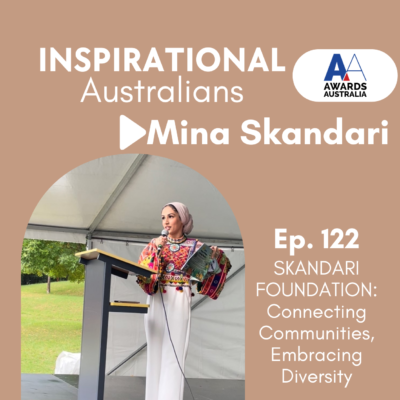In this week’s episode, Josh is talking to Bianca Templar who is a winner in the 2021 Tasmanian Young Achiever Awards.
I am granddaughter of respected Elder and sheller, Aunty Gloria Templar, descendants of the Trawlwoolway and Plangermaireener people of Lutruwita whom of which were taken to Flinders Island, and Cape Barren where my grandmother was raised.
I am known for my activism and continuation of cultural knowledge and practices. Despite the adversary i have faced with having a disability, mental health condition and continued discrimination, I continue to push forward.
In this episode:
- Bullied at school and being told she wouldn’t amount to anything, Bianca has completed a Bachelor of Social Work through dedication and a little bit of spite that spurred her on
- Inspired by her Nan, Elder Gloria Templar, Bianca has continued the art of shell stringing, the cultural practice of collecting, preparing, and stringing shells to make necklaces and bracelets by Tasmanian Aboriginal women
- Bianca lives by her motto “Be the person that you needed when you were younger
Links
Connect with Takamuna rrala designs on Facebook
Connect with Takamuna rrala designs on Instagram
Want to know how to Rate and Review a podcast, see this article
Follow us on our Inspirational.Australians Instagram Page
Want to nominate someone? (It can take as little as 2 minutes to recognise someone making a difference)
Like some more information on Corporate Partnership?
Transcript
Welcome to the inspirational Australian’s podcast, where we chat to people making a difference in their communities and in the lives of others. And here is your host today, Josh Griffin. Thank you, Annette and before we get into this week’s episode, just have to ask all of our listeners for a favor. And I wanted to ask if you have rated and reviewed the podcast as yet. If you haven’t, then please, I’d love you to do so. And a lot of people ask why, why do we have to write and review the podcast? Why do you ask us so often? And, well, what it does is it actually gets the podcast into more people’s feeds and it gets shown to more people. And we think that’s a really positive thing because we’re sharing inspirational stories of extraordinary people, extraordinary Australians. And we feel that by getting those stories out to more people, then it can just provide a bit more positivity and a bit more inspiration for people who might need it. So it’s pretty easy to do. If you don’t know how to do it, head to awardsaustralia .com/podcasts and our wonderful producer, Annette that has put a little how to guide right there in the website, make it really easy for you. Now, one more thing before we get started, actually going to bring you behind the scenes of the podcast. This is sacred stuff, not really. But anyway, we recorded this episode with Bianca Templar a few weeks back. Probably close to a month, almost now and only releasing it now this week in reconciliation week in between recording with Bianca. She was a finalist in the Tasmanian Young Achiever Awards. We actually held the awards night where believe it or not Bianca was announced as the winner in the award. And we didn’t realise at the time and night. And so I’ve got Annette here with me to share a bit of light on that. Because Annette, you were there in Hobart for the event. Yes I was, and I was at reception desk and Bianca ran over to me because we’ve done the podcast. So we got to know each other a bit. And she was resplendent in her bright pink hair and, and nose rings, and she’s just so much fun and we had a hug. And I wish her well, because I don’t know the judging results. So I was as surprised as she was when she was announced the winner. And it was wonderful. She ran up on stage and Dr. Jessica Manuella from Dental South is our presenting partner for the First Nations Peoples Achievement Award, which Bianca won. And yeah, I just felt a whole lot of pride just. Yeah, pretty cool. And you’re right. Her hair does look incredible. Anyone wanting to see some awesome photos of the event? The whole event including Bianca being presented as the winner. You can head to Tasmanian Young Achiever Awards on Facebook, heaps of photos up there and a bit of video content too I believe. And yeah, that was great and Jess Manuella a as you mentioned, she’s on episode 42 of the podcast, which was very recently aired. So that’s a really good one to check out as well. She’s very passionate, first nation’s leader and very successful business person in her own right as well. So I guess without any further ado now that we’ve let everyone know the inner workings of the podcast, we can move on to this week’s dose of inspiration, Bianca Templar. Now as I mentioned, she was a finalist and then announced as a winner in the Tasmanian Young Achiever Awards and Bianca is enhancing the voice of grassroots first nations people in Tasmania, Bianca is a young aboriginal woman who has worked crepuscule type come walk with us sessions, as well as coordinate and execute the Launceston black lives matter vigil, which obviously was last year, Bianca spoken on radio for the wider community to be further educated about issues Tasmanian aboriginal people face and the politics that are involved. She’s worked with the Tasmanian Aboriginal Centre and the National Aboriginal and Torres Strait Islander Alliance. Bianca completed a Bachelor of Social work and was named the Tasmanian Aboriginal Youth of the Year in the 2020 NAIDOC awards. Bianca is a finalist in the Dental South First Nations People Achievement Award and keep an eye out on the list of episodes because we did actually interview Jess Manuella recently, she is the founder of Dental South, the company that is our sponsor partner for that award. So Bianca, welcome today. Thanks for your time. Hello. How are you? I’m good, thank you. You’re looking forward to the gala presentation event, which is at our time of recording next weekend. Yes, I’m pretty excited. I’ve got all my stuff folded in a family dress and I’m pretty ready to go. lovely. That’s funny that you mention, that is something that we’ve been hearing people say actually ever been to an event in a while, even though kind of events have been back on people haven’t really been going to them that much. So we just kind of well yeah, what about where to events? Exactly like by who do you go about trekkies? Welcome home. But now it’s funny will be great to present you as a finalist, and by the time this episode has aired, that event will have come and go. So people can check out the Tasmanian Young Achiever Awards Facebook page of all the results. Now Bianca, talking to you today about the work that you’ve been doing over the years. And obviously before we talk about what you’ve been doing recently in the last 12 to 24 months, kind of wanting to start back at the beginning and you’re a finalist in the First Nations People Achievement Award, so have you always from a baby being brought up as a a first nations person that’s an aboriginal person, or is that kind of been something that you’ve learnt and discovered over time? I’ve always known who I am and I’ve always been pretty, I’ve always been very proud of who I am. When I was younger, we had there was a lot of involvement with us within the community. Like because my dad being stolen generation, he was taken away from his mother. However, he was lucky to still be able to stay here and spend some time with her. And because of that, when he was growing up because of things that happened to him, he was a bit hesitant, so to speak about how much she embraced of who he was. So when we, he started embracing who he was and when he started doing that, my brothers and I started doing more things at the centre and at the elders council and going to the childcare and places like that. But with the community politics being a bit rough, sometimes it can make people feel the need to step back a bit. And so when I close to my teenage years, my dad did step back from community for, for a while there. But because he did that and I understand why he did that, but because of that, it kind of meant that my nan picked it up because she always wanted us to know who we were and ensure that we had that sense of cultural richness in our life. And that connection to our community, and I quickly ask, is that your nan is that your dad’s mum who he was initially separated from? Yes, that’s my dad. So her name is Annie Gloria Templar and she was the traditional show for down here in Tasmania. I used to sit at the kitchen table and watch her show way with her two and cross shows, and I would ask her a bunch of questions as to why she’s doing it. How is she doing it? Where do you get that from? Can I do it? Things like that, all the kid questions. I asked all those questions that as I got older nan continued to do more to ensure that I was deeply rooted in my community. So she took me over to Cape Barren when I was 14 to take part in a documentary called the Island Music. Ok, well where is that Cape Barren? Cape Barren is one of the little islands of Flinders Tasmania, So this part of the Furneaux island group. So that includes Flinders Island and King Island as well as well of all the other little ones like big dog and great dog And Yeah, yeah, great names. But yeah, she taught me how to show and like, over the years I kind of dropped dropped out and kind of do my own thing. Being a teenager, college student, I think I was just up talking to nan one day. And she went, have you heard of this? And we started talking about it and it was like kind of like a light bulb moment in my head of, you know, I know a law that is so much more left and I and it kind of put me on my journey to make sure that nan’s wish was granted that I knew who I was and I intended my roots deep into my community. I’ve grown up in community but during my, my early years, my involvement with the community was a bit in and out. Yeah. That’s. I think a lot of people can relate to that moment. Well, I’ve been around and it can be any topic. I’ve been around this for my whole life, but he never really had that moment that clicked that light bulb until you get that little bit older than you realize actually the importance. Absolutely. Especially when, when you’ve got a grandmother that has so much knowledge and richness and respect in the community, you fill that void of obligation that it’s your duty now to take over and do those things because my nan passed away last year and she, she’d been sick for a very long time and that’s part of the continuum step ups. Yeah, yeah. Yeah, I’m sorry to hear about your nan, Bianca. Were you able to, you know, have a funeral for her 2020, being the year of so many difficulties. She passed away in February, so we’re lucky that it was just before the corona virus and stuff hit. When she was in hospital, she was on one side of the room and across from her without any of it, she was with aunty as well. And so when we knew nan time one was coming to an end, so I went and got a cassette of the old Cape Barren music that I Yeah. And then I went got my volume player, and I put my cassette in and I took it into the hospital and held it up right in her ears. So she could hear all music before she for the last time before she passed. Wow. Aunty is sitting across the room and she’s singing and she’s really. Yeah. Unfortunately though she passed away about three, four weeks after Monan. Oh geez, that’s a rough run. Or it’s been a very rough year with a lot like the last 12 months with community has been very rough. Yeah. Well, I guess kind of asking a bit before this time when you were younger, going around with your nan to the community center. You mentioned earlier and things like that was it sounds like she was someone was very well known in the community. What was it like getting around with her and everyone probably stopping you and saying hello and those kind of things. It kind of makes you feel famous like even now like I’ll go talk to someone and I was like, oh who are you? Because that’s you know, I am not who you are. I say all morning. I’m Gloria’s granddaughter, they’ll be like, I love Aunty Gloria I’ll be standing there for the next ten minutes hearing about all these stories and it’s great because you never, you never feel like someone’s actually going to when, when people continue to talk about them like their still here. The way they put it. It’s funny to me because of my nan being so well known in community. I can’t, I couldn’t get away with anything because the grown up that I thank you for doing this. Yeah. So you had everyone looking out for you or looking at to make sure you were doing the right thing. Yes. Which is, which is good, but it makes you laugh now, like looking back on it. Yep. For sure. Now I did want to ask quickly, one thing, at least try to scribble a little note earlier. You talked about your dad and his mom and dad had talked about a lot, Gloria. He was separated from her, obviously heart breaking and then he had to step away from the community and things like that and you can totally understand like just the trauma that people have been through how that they would not in some ways not want anything to do with it. And so it’s importance great that what you’re doing is continuing the legacy and, and helping people understand what was it like for you. So you go…. When my dad was involved, like, heavily involved in community. He was part of the book development with Uncle Jimmy Everett and in that book, he wrote a series of poems and those poems, range from when he feel like you thoughts and feelings about the arrival of the first lead to him being a child and growing up in the confusion in which he faced. Yeah, that sounds like it would be very powerful with your own upbringing and going to school in those kind of things. You know, did you find your I guess aboriginal heritage? I guess the question i’m asking here is one of the only ones at your school or was it something that you were able to incorporate in your schooling? When I was in primary school, from, from what I remember, it was only one problem, a nightlight on like in my brother’s phone, there was another two aboriginal people that came into the school that year. And in high school there were some aboriginal kids, but it wasn’t really something that was talked about. And like we’re working on that now, I truly feel that it’s because the education system that we were in like everyone that I went through primary school with knew that all these aboriginal because they’d pull this out of class and put in and put us in this little room and we would do nothing because we were aboriginal, I could do the whole thing made no sense. But people knew that they were aboriginal because of things like that. So like you were sitting in a humanities class and then sitting there telling you about first lady and, and he was the last real aboriginal and they all died from the fury and all your friends look and you like. Well, Tianca must be a liar because the and was lost. tasmanian aboriginal person was Bianca, claiming to be one. And so you get a lot of ridicule and racism from the people in your school because of the things that were being taught at that time. But on reflection overall, I don’t feel like it was ignorance on the student’s behalf of ignorance on the behalf of the education system and as a student at school, especially primary school, the teacher is not wrong. Never. Yeah. And that’s come home and argue with your parents or teachers at this appearance at all. It’s not always accurate. And then you say no teacher said that has to be true. It kind of leads you into this paradox of confusion trying to figure out who in your life is lying to you, who can you trust and it’s not fair. It’s not fair on a parent to be put in that position and it’s not fair on a child to be put in that position. Yeah, very true. So yeah, that sounds like it would have been quite difficult at times going through a school like that. Did you know kind of what you wanted to do with yourself as you went through school? As you got older, i should say. When I was in primary school, because there were some things happening at home and which resulted in my brothers and I all being referred to a social worker through the school for being at home like I have a lot love for my parents, but my upbringing was tough because because of how my dad was brought up with not having these loving mother around and a stepmother that he before. On occasion being horrible to him. He really struggled with being able to express emotion and things. And my mom could be very complacent to that. They’ve changed a lot now and realize things. And you know, my dad’s probably the most loving parent in the world now. But yeah, because of my upbringing at the time we refer to a social worker. And I went and saw the social worker and it just blew my mind that someone who had never met before, who had no interest like invested interest in me to care for me so much. She could make me feel more scared than any, any other person in my life. And so I get from grades from, from grade three on. That’s what I wanted to do. Wow, that’s awesome. That’s so cool. I didn’t know where you’re going with that story. And yet very touching, and it shows that when people just care that how much of an impact it can make, i’ve always maintained that as a social worker. As long as I can have one positive influence on somebody, then that’s, that’s my entire career. I’ve made my entire career as long as I can positively influence one person. Yeah, so obviously that’s why you did you Bachelor of Social work at University, can you tell us a bit about how you go? Oh, it’s a bit of inspiration. A bit of story. So when, when I was going through school I was, I was just one of those naughty kids and my mom would always tell people to make me laugh every time she would always tell people. Because I’m the youngest of two brothers and she’ll go, I never had a call from the school until Bianca started going, so they put me on all these classes where you’d learn like a trade and stuff because they told me that they didn’t think that I was going to make it anywhere. And then I had the same problem through college, like I was just treated like a no hoper and would drop kick. And so it was out of support for those people that it really that I wanted to push on and go to university. Like I know people tell you that you shouldn’t live in hating sport. That depends. It depends on how you look at it and how you want to utilize that feeling in which you have. Yeah. Ok, that’s an interesting way to look at it, isn’t it? Because you, I can’t help because I’m a bit of a nerd, but draw parallels to like the Star Wars you know, using the, the force the dark side of the force. But I like what you’re saying because you’re using that anger as a powerful emotion. You know, if we just boil it down to that, that can still be a motivator. But, but then what you’re saying is you’re not doing it while you’re angry, but the anger that was what kind of sparked you in the initial. Yeah. The, the fire going belly. Yeah. Yeah. And so, yeah. So that pushed you because people were telling you that you couldn’t do it or they weren’t believing in you. Yeah. I couldn’t like it kind of, I can be very stubborn. And so I didn’t want to allow these people to feel like that they had won. Yeah. What was it? Know? What was the process for you getting into to university here it was really good luck. I struggled for the first two years. And that was because when I was in college, we never really had to write assignments and things like that. So I struggled with that aspect of it. And then one of the lectures made a comment about me being a mediocre student and I go we’ll see about that. So we all went from having a GPA of 4.0 in my first two years to finishing with a GPA of six point zero. And that meant that I am now a part of the University of Tasmania’s alumni. That’s awesome, well done! Thank you. Congratulations. That’s great. So you’ve finished your degree and then did you start working in social work? I did a lot of community development stuff when I first finished my background and community development work. So I first began out working with Colonie Forty Seven stint as a community pathways planner for things like family counselling, grant writing, and facilitation and execution of night events. And now now contemplating to be a bit more freelance at the moment, doing different bits and pieces like going into schools and teaching about culture and providing timelines with aboriginal culture and the impacts of colonisation and working with workplaces as well to to provide them more information on ways in which they can be more inclusive working with Aboriginal and Torres Strait Islander people. That’s cool. And how did the Come Walk with Us sessions come about at the University? That’s a place called Rwanda, which is like the bureau. It’s like an aboriginal cultural hub on the University campus there. And I spent a lot of time hanging out there because it’s the safe space where you study going to what institution you need a safe space and that’s what Rwanda is and was for me. So I was in there and one of the workers they just said to me, Oh, you want to do, you want to earn some money like we think that you’d be good at this pays this much, are you interested? Why not? Yeah, that’s how it came. And then it turned out that this was a ticklish in my dad, and I used to work together. And so I got to hear all the stories about dad and and so what was the, explain to us, I guess what I come walk with us session was. So come walk with us is an interactive program where you learn about pre colonisation and then colonization, and the ripple effects of colonisation up into the current state in which it’s very rigid. We get people to do like when we’re writing out conversations from diary extracts from Augustus Robinson. We’ll get volunteers to get up and be the speakers and things such as that to make it more interactive formal. There’s a child child version called Gum-nut to Buttons. And that’s where we do the visual effects. So we put out all the gum-nut to show the map around Tasmania and then take them away, take them away and then fill up the map with buttons that might use that visual effect for the young people. Hmm. That sounds really interesting in terms of showing people giving an insight and making it real with real people and that kind of thing as well. You’ve been facilitating those sessions and things like that. When kind of was that was that in recent years or that was what I was studying at University, I’m looking at doing some gum-nuts to button programs and schools, but yeah, to come work with us and some of the gumnut buttons coming up to button sessions i did, but mostly while I was studying for between 2013-2016. And so another thing you do that people may not know about is Takamuna Rrala artwork and so, you know, you obviously do your social work and you help people in that way and interact with people. But you know, you tell us a bit about your artwork as well. So Takamuna Rrla is Palawakani, which is Tasmanian Aboriginal Corp. So it’s Palawakani for stand strong designs. Yeah, I was inspired to make my art page and things because of the push that my nan was giving me to put myself out there more. So it started off with being made just doing shell shell stringing and now that’s escalated into doing like large scale commission painting pieces and things such as that. So that’s become known as continuing the legacy in which my nan created through Takamuna Rrala. Yeah. Yeah. And so because you do other jewellery as well, is that right? Yeah, I netcom like resin pendants. I do a lot of work with kookaburra feathers. Yeah. Anything really? I could get my hands on. No, no limits. Is there? No, I was trying to make a necklace out of bone that, that give people kept breaking on me. Well, people can check that out at Takamuna Rrala Designs on Facebook. Yeah, I think you were telling me once actually about one of those commission pieces because you’ve done a fairly big one recently, haven’t you? Yeah. The same people actually have got to do another one. So at the moment I’m in the process of doing another piece. And both of them are about a meter and a half high. Yeah. What was it for? Was an inside like a one of the buildings, or was it a canvass or something? Or? Yeah, it was a commissioned canvas full inside these offices across the state. As part of the reconciliation action plan for doing things to bring culture into the workplace more and acknowledge the land in which the workplace is on. Yeah. Yeah. Just embrace embrace the culture of that they’re living within. Yeah, that’s great. And so did you start that, you know, before your nan had passed? You know, Yeah, that, that was earlier this year. I do wish that nan could have seen me do a lot of the things I am now. Unfortunately, you can’t wish people to be here knowing that it was going to cause some pain as well. Yeah, I mean, you know, it’s brilliant that you’re really honoring her and her legacy by continuing this on as well. I hope I hope she’s proud. I’m sure she would be one hundred percent. Speaking of recent things and you know and making people proud, i’m sure she should be proud of this. You coordinated the Black Lives Matter vigil in Launceston last year as well. Can you tell us a little bit about the planning of that and making it all happen? And I know that you faced some, some challenges along the way. So it kind of came about with some conversations with some of my cousins who lived, lived in fact, and no one is talking about it should like we should do something we should be done. And it was kind of like my cousin down south went, all right, logan on something for down south. And I said you will find something for the north . And you got markussen, you go organize the Northwest. So it kind of just went from a conversation to my other cousin, just saying, all right, well you’re doing it now, but conversation. So you doing it? Yeah. So yeah, obviously that was a lot to talk with like police and the council and making sure that we didn’t have candle’s too close to labor in the park and for environmental reasons or on the same site is very specific, doesn’t it? Because it was important to square and where we had it, there’s a big fountain. And so because I wanted to place candles around the fountain, i actually had to go with a broom and sweep out any leads that were there in order to place the candles. But yeah, there was a lot of media coverage, which was both a blessing and a burden because I got a call from some stranger and an unknown number telling me that they were the KKK and that they were going to kill me if I went ahead with the event and it was like, well, this just shows exactly why we need to do it. Yeah, that’s absolutely disgusting. That happens and it’s hard but shows yes, shows the importance. And I remember my mom and dad, they were like, they started worrying a lot like, you know, people can be very unpredictable and I said to them, I thought about some of the flight. But if I pull out now they get what I want. And you can’t, you can’t let bullies get what they want. And I went and did something. If something happens to me on the day, it just shows the ideology that these people have in comparison to us. That’s a very courageous thought to have though to think, well, if something doesn’t happen, it’s still an important message. So yeah, that’s massive. kudos to you for being brave enough to go through with it and stand up for what you believe in. Thank you. You know, you were talking about you have to do with candles, police, people making death threats, which is horrendous. And then on the, the actual date of the vigil, how did everything go? It went really, really well, went well as opposed to planned as you could expect because we organized it within a week. It was in a week or two that it was all planned and executed. So on the day it went really well. Like I went over to one of the organizers, my cousin and I went, we need to do something else. We need to do something that’s really going to fly in effect. And so we went that eight minutes, so we made everyone sit in silence for eight minutes, and then I got up and said, this is how long George Floyd was held down and suffocated forward to head on. Wow. That’s very powerful. Like a minute of silence is a long time and you think eight minutes that would have seemed like such a long time for people. And then to say that at the end, really drives home, just how unjust that situation was. And you can see the change in their face to the confusion of kind of why we’re standing here for 8 minutes of silence. Then the explanation at the end. Like they say, it’s like, oh my God, that that was such a long time for me, it would have felt like I was to him. Yeah, that’s, that is very moving. And I suppose, you know, it’s interesting time we’re talking about now wasn’t that long ago that the verdict was announced. And we just hope that this does continue sparking change and, and positive things moving forward. The thing, the frustrating thing is that these events were held throughout Australia in solidarity for America. But since that time, there have been more aboriginal deaths in custody. Like also the top of my head than seven in the last two or three months. And it’s like a whole whole nation stood still in solidarity. And yet you’re now going to completely diminish every, every seed that we planted in the minds of our, of our fellow Australians. And they’ve come in and gone not done that. And I feel like this year, the anniversary of the royal commission investigation into the death of custody. And yet they’re still not doing anything that needs to be done like they just, it just shows the level of racism that we have to deal with within the justice system. Like I remember they did some stuff with youth justice and whenever there was an aboriginal person would go into the court and that lawyer would stand up and go. This is such such an aboriginal person. And so it leads you to wonder why they said it and what their intent behind it was to create what were there intending to do by saying that? Yes, certainly very complex and I’m glad that we’re hearing from people like you who can shed some light on it and raise some awareness. And you know, we’re letting people know that this is still an issue here. Yeah, and we haven’t turned out our eye, we’re still watching and with you doing things to bring to ensure that the wider community know what’s going on and that we want those officers being held accountable for their actions, because if it was someone out in the street that did something like that, they’d be flamed for, was it ok for a quotation like officer of the law? Yeah, for sure. And you know, for people who are interested in hearing more about these issues, it’s, it is actually the timing is kind of interesting in that we’ve interviewed recently on this podcast. As I mentioned, the top Jess Manuella first nations lady from Tasmania as well. We’ve interviewed Shane Cook, who was a South Australian Young Achiever of the Year for 2020, who’s a first nations man. And in that podcast, we speak about some of these issues that young people face. And so another interesting one is actually an American, Britney Ward, who work in the Northern Territory for a long time. And she is now in Oklahoma City and working with the police Department on this really innovative program. It sounds great like something we should have here, where the police Department hold like these sport leagues, just completely free sport leagues for kids to be a part of. But importantly, it puts police in the community, not in a law enforcement way. purely getting to know people in the community and it gives them an insight into what is really happening, what real people are real issues. That is anything like happening like that in Australia would be right. There’s so many options of the things that we could do, that the government just doesn’t have the interest in doing it. It blows my mind that an aboriginal person can be treated in such absolute disgrace and, and could get no media attention or anything like that. If something happens to a non aboriginal person and it’s everywhere, everyone knows that it’s all over the news. It’s everywhere. Like all of us telling someone about the black deaths in custody in the last couple months. And I was shocked, but it hasn’t been on the news and this is part of the problem. Yeah. For sure. It is a problem. And so they’re trying to sweep it under the rug. They’ve historically done that since colonisation. Yeah, it’s. Yeah, it’s not good enough. I agree with that, Bianca. The ideologies as well, like I remember I was in hospital because my brothers in law have brittle bones, osteogenesis imperfecta, so we spent a lot of time in hospital which is both a blessing and a burden. Yeah, and I’ll thank you. I want to talk to the aboriginal liaison officer, i went one on the flight from aboriginal and that is that’s not right. I want to say the liaison officer because I was in emergency, i was the frustrated trying to explain things and I thought I need, I need somebody else here. They flat out denied the right to see her because I didn’t look aboriginal It just shows the level of ignorance and stereotypes within government systems with my brothers and I being disabled. So we spent a lot of time in hospital and like, although it was really, it was horrible spending so much time in hospital and like my brother, tristan didn’t walk into properly until he was 18. spent most of his life in a wheelchair really and only started walking because I put metal rods through his legs that he can walk around on a broken leg. And it doesn’t matter because of the rods that Yeah, I remember being in hospital and feeling sorry for myself. And one day, the other little kid that was brought in and locked all the nurses around and they were rushing around and it turned out that the girl who was about two years younger than me, her father had deliberately caused a car accident because of a custody battle he was trying to kill, kill his child because of the bitter custody battle. He was going through with his wife at the time. And you’d, you know, you’d be in there in the car, sitting across next to you was going through chemo and it looks like from perspective certainly does. Certainly does. yet. There’s always, I don’t know if this is a good thing or not, but there is always someone worse off and whether you can use that to inspire yourself or not is one thing. But I kind of wanted to ask you, you know, this is really relevant. Actually, we talked about earlier that you had been viewed at some points in your life by anger and maybe even hatred. And then you’ve gone through all these challenges and obstacles in your life, you know, disability, racism, and all these things. And yet now I know that, you know, you, the thing you love is just helping people and working with, with others to understand important issues and enlighten and educate people. So what inspires you now, Bianca? Well, a lot of that has to do with my upbringing too. So when I was growing up, as I touched on earlier, having some issues with my parents, but I was also sexually assaulted by someone in the family or not in a family that was friends with a family member. Yeah. And that went on for about 12 months And because of the things that were going on at home and then with that happening, I felt like I had to be quiet. I felt like I was alone. So growing up and continuing to, to carry that feeling of loneliness because of the things that have happened in my upbringing, i feel now as I’ve like, overcome those things and addressed it and things. Now what inspires me to keep going is I don’t want other people feeling how I did. Yeah. And if I can do something to make sure that I feel that is the model i did in that situation. And that’s what I need to do. Like I always offer for a quiet and I sort of maintain that sense. Is they the person you needed when you were younger? And so now on being that person for people that are younger than me. Yeah, that’s yeah, that’s absolutely lovely. And you know, people sometimes just need to be seen or to be heard and valued and you know, for you to be able to provide that to people now is just a wonderful thing. And sometimes it can be as simple as sitting there not saying anything. Yeah, because they just want to be heard. They don’t want someone to respond or tell them what they need to do. They just want to feel heard. Yeah. That’s true. You don’t always have to fix people’s problems. Do you just listen? That’s it will be okay, that’s certainly very, very moving to me very inspirational story. The way that you’ve gone through everything in life, you know, taken so many obstacles and to where you are today, you know, and a finalist the Dental South First Nations People Achievement Award. I certainly think it’s inspirational and I want to thank you for sharing your time with us and telling us your story. Because I think it’s great that people get the opportunity to hear it. Thank you for inviting me to come on and have a chat and a really great opportunity. Bianca just one last time before we go Takamuna Rrala designs on Facebook. Can you tell people? Maybe can you spell it out for us? So people can search that and, and make sure they go into the right spot. So so T-A-K-A-M-U-N-A then space Double R-A-L-A Lovely, and is there anywhere else that people can kind of follow along to see your work as well? I’m on instagram so that is Bianca Templar – Takamuna Rrala if you type my name, it would come up. Well, we will put that in both of those in the show notes as well, do people can easily get those links. And of course on next weekend, which I should look up the date, you might not be ahead actually, but next the 14th, 14th of May is going to be the gala presentation dinner event for the tasmanian young achiever awards. I’ll be following along the, the Facebook page to see the results and to watch everything. So Best of luck to you, have a great night. Whatever happens you’ll, you’ll enjoy it and can’t wait to touch base with you and keep in touch and see how things are going in the months and years to come. Absolutely! Thanks, Bianca, for your time today. We hope you enjoyed that interview. If you liked it or any of our other episodes, it would be great if you can rate and review the inspirational Australian’s podcast. It really helps us out if someone you know, needs a little taste of inspiration, why not let them know about this podcast? And if you haven’t already, make sure you subscribed, so that you won’t miss an episode. Join us each week as we talk with ordinary Australians, achieving extraordinary things. You can always head to our website at awards australia.com/podcast for more information and details on each guest. Now before we go, i’d like to thank Annette our producer. Here’s a fun fact, and that is my mum and our other hosts, Geoff is my dad. This podcast is brought to you by Awards Australia, a family owned business that proudly uncovers the stories of people who make a difference for others. We can only do this with the support of our corporate and not for profit partners as they make our awards programs possible. So do you know someone making a difference? If you’d like to recommend someone to be a guest on the podcast, get in touch through your instagram page, inspirational.Australians, or maybe your business might like to sponsor the podcast or get involved with the awards. We run to website awards australia.com for more details. Until next week, stay safe and remember, together we make a difference. Thanks for joining us today on inspirational Australian’s podcast. We hope you enjoyed listening and have been inspired by ordinary Australians achieving extraordinary things. So it’s goodbye for another week. Remember, together we make a difference.


